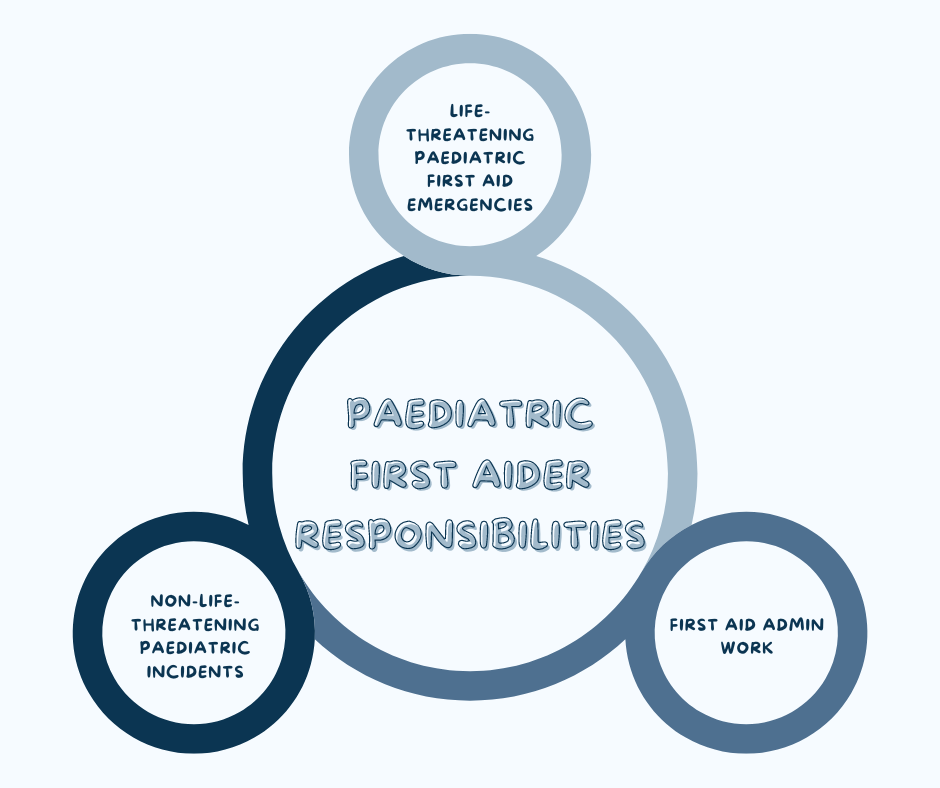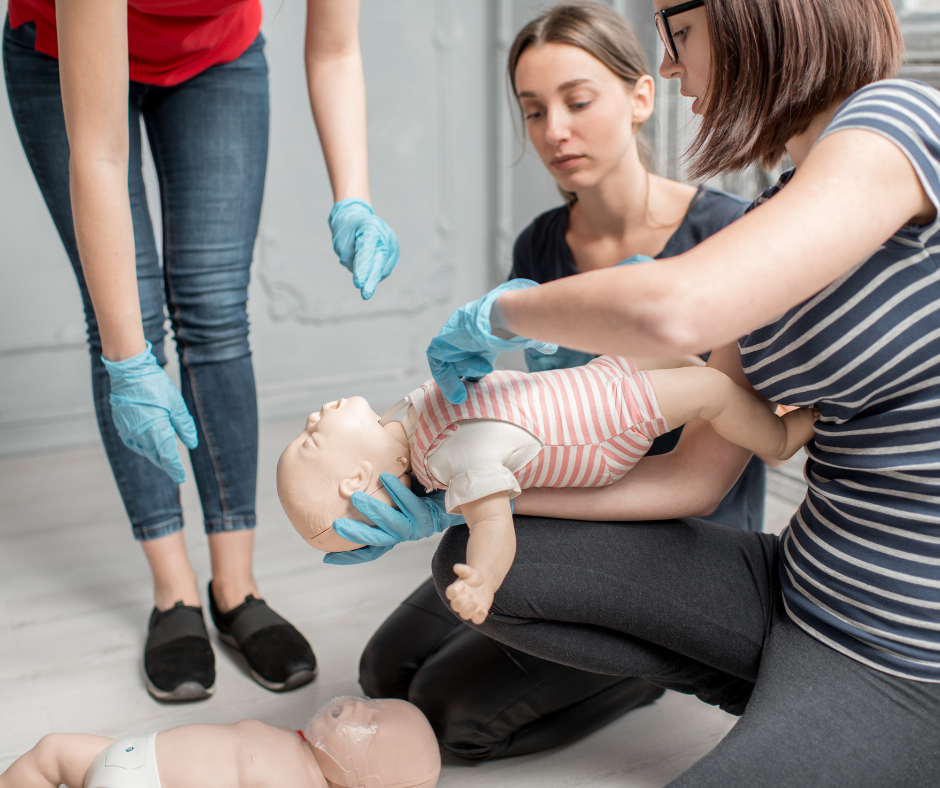
 Paediatric first aid refers to the first aid training specifications set out in the Early Years Foundation Stage Statutory Framework (EYFS), which are tailored to ensure those holding a paediatric first aid certificate have the skills needed to administer first aid to a child or baby.
Paediatric first aid refers to the first aid training specifications set out in the Early Years Foundation Stage Statutory Framework (EYFS), which are tailored to ensure those holding a paediatric first aid certificate have the skills needed to administer first aid to a child or baby.
It is the responsibility of the employer within any environment including children to ensure that the proper first aid needs assessment and training are in place.
Here are some things you should know about paediatric first aid:
What are the requirements for paediatric first aid?
The requirements for paediatric first aid in the Early Years Foundation Stage state that at least one person who has a current paediatric first aid certificate must be always on the premises and available when children are present and must accompany children on outings. The certificate must be for a full course consistent with the requirements stipulated in Annex A of the guidance. The course must be a minimum of 12 hours long. Childminders and any assistant who may be in sole charge of the children for any period of time must also hold a full current certificate.
Full certificate holders may be supported by emergency paediatric first aid certificate holders but cannot be replaced by them. The certificates should be renewed every 3 years.
What is the role of a paediatric first aider?
 The responsibilities of a paediatric first aider include responding to life-threatening paediatric first aid emergencies including choking, severe bleeding, unresponsive and not breathing normally and, seizures. Responding to non-life-threatening paediatric incidents including burns and scalds, bites and stings, eye injuries and minor cuts and grazes. Other responsibilities may include ensuring that the first aid equipment is up to date and the writing of reports following a first aid incident.
The responsibilities of a paediatric first aider include responding to life-threatening paediatric first aid emergencies including choking, severe bleeding, unresponsive and not breathing normally and, seizures. Responding to non-life-threatening paediatric incidents including burns and scalds, bites and stings, eye injuries and minor cuts and grazes. Other responsibilities may include ensuring that the first aid equipment is up to date and the writing of reports following a first aid incident.
What is covered in a paediatric first aid course?
The emergency PFA course should be undertaken face-to-face and last for a minimum of 6 hours (excluding breaks) and cover the following areas:
- Be able to assess an emergency situation and prioritise what action to take.
- Help a baby or child who is unresponsive and breathing normally.
- Help a baby or child who is unresponsive and not breathing normally.
- Help a baby or child who is having a seizure.
- Help a baby or child who is choking.
- Help a baby or child who is bleeding.
- Help a baby or child who is suffering from shock caused by severe blood loss (hypovolemic shock)
 The full PFA course should last for a minimum of 12 hours (excluding breaks) and cover the elements listed below in addition to the areas set out in above (the emergency PFA training elements outlined above should be delivered face to face):
The full PFA course should last for a minimum of 12 hours (excluding breaks) and cover the elements listed below in addition to the areas set out in above (the emergency PFA training elements outlined above should be delivered face to face):
- Help a baby or child who is suffering from anaphylactic shock.
- Help a baby or child who has had an electric shock.
- Help a baby or child who has burns or scalds.
- Help a baby or child who has a suspected fracture.
- Help a baby or child with head, neck or back injuries.
- Help a baby or child who is suspected of being poisoned.
- Help a baby or child with a foreign body in eyes, ears or nose.
- Help a baby or child with an eye injury.
- Help a baby or child with a bite or sting.
- Help a baby or child who is suffering from the effects of extreme heat or cold.
- Help a baby or child having: a diabetic emergency; an asthma attack; an allergic reaction; meningitis; and/or febrile convulsions.
- Understand the role and responsibilities of the paediatric first aider (including appropriate contents of a first aid box and the need for recording accidents and incidents)
How can WA Management help?
WA Management offer the QNUK Level 3 Award in Emergency Paediatric First Aid (RQF) and QNUK Level 3 Award in Paediatric First Aid (RQF) courses, both delivered by one of our expert trainers. Get in touch to express your interest or to book a course!

Managing Health and Safety, Mental Health Awareness & Stress Awareness training courses are essential tools in protecting and improving employee welfare. Make sure you don’t miss out on our 10% off deal on these courses, available until the end of May. Simply enter the code ‘welfare10’ at checkout to save!
Read more Consultant’s blogs here.
To keep up to date with the latest health & safety news and advice, follow us on social media:
